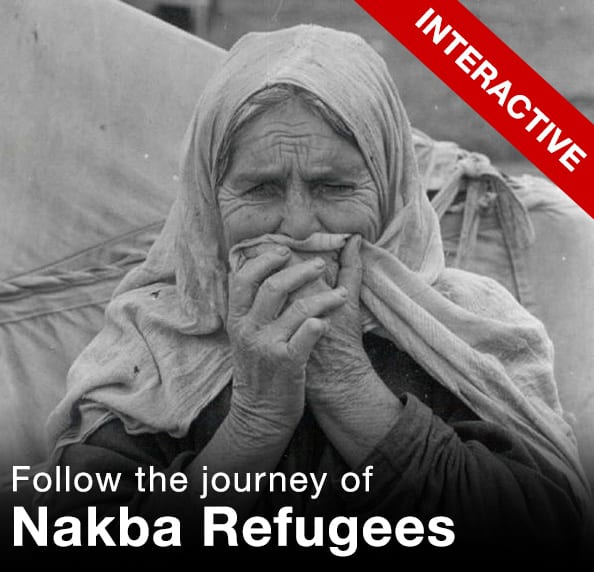The Palestine Solidarity Campaign hosted a day conference in London to commemorate 68 years since the Nakba or Catastrophe. The conference focused on the consequences of the events that took place in 1948, how the plight of the Palestinian diaspora is ongoing and how the Nakba lives on through the settler-colonial policies of Israel’s Zionist government and its international supporters.
Panel discussions, stalls and rotating workshops were held throughout the day. The first speaker, Professor Nur Masalha, instantly gripped the audience. A historian, he revealed discoveries he had made through Israeli archives that Zionist plans to take over Palestine were in place long before the Nakba.
“1948 wasn’t an accident or a tragedy – tragedies refer to natural disasters, earthquakes etc. During the 1920s, Palestinian media was reporting on the threat to Palestine by the Zionists and was aware of their intentions, however they did not realise the extent of planning by the Zionist movements,” he explained.
He continued by comparing the actions of the Zionist movement to that of colonial states such as the British Empire and how the Brits were no longer able to justify their actions and evolved. However, Israel continues to receive sympathy and justification for its policies today.
“Why are the Israelis afraid of the Palestinian commemoration of the Nakba? Why do they want to ban Palestinian solidarity?” he asked the audience. “Because they are afraid of facts and truths.”
Workshops held during the conference provided insight into how the media’s bias protects Israel, details of the longest running refugee crisis, the right of return, education, the treatment of Palestinian minors and also information on how the audience can partake in the Boycott, Divestment and Sanctions movement.
The second panel discussed the facts on the ground today. Arab Israeli Awad Abdelfattah, a member of the Israeli Knesset, was able to shed light on what it is like for an Arab living and working in Israel. Abdelfattah said: “The source of inequality and injustice is Zionism, not anti-Semitism.” Palestinians, like all other people, deserve to live in equality and have their own national identity if peace is to be achieved, he explained. He reflected on his willingness to exist peacefully with Israelis.
“I am from Gaza,” award winning author Ahmed Masoud was able to give insight on life as a Palestinian from Gaza. He went on to describe Gaza as an open-air prison under a land, sea and air blockade by the Egypt-Israeli authorities and subject to daily incursions by Israeli forces. Masoud outlined a key difference between apartheid in Palestine and South Africa, in South Africa black people were segregated and forced to become slaves and servants however, Israeli-Jews aim to ethnically cleanse Israel and the occupied territories completely.
Needless to say, the plight of Gazans was painful to hear. “What does the Nakba mean for Gazans? It doesn’t mean anything. We are still in a Nakba and won’t know the difference until our conditions change,” he said.
MEMO Exclusive Images.









